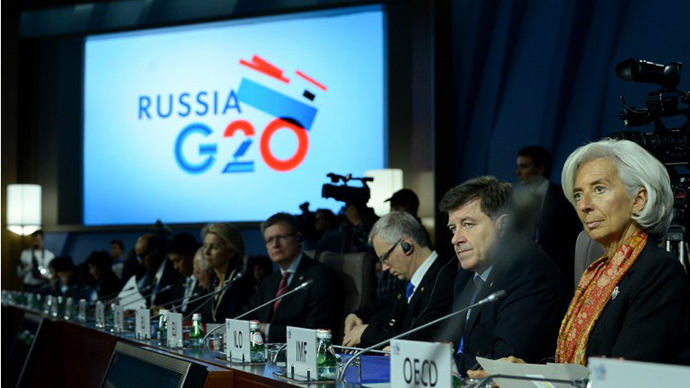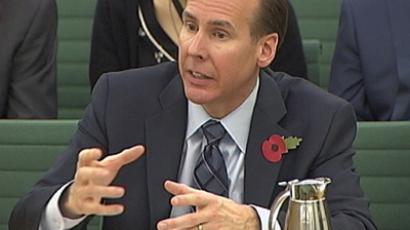G20 plans to force multinationals to pay more taxes

Finance chiefs of the world’s leading economies plan to tackle “global tax chaos” caused by multinational giants such as Starbucks and Google shifting profits to low-tax countries.
The plan designed by the Organization for Economic Cooperation
and Development (OECD) was introduced and supported by the G20
finance ministers at a meeting of in Moscow on Friday.
The long-awaited report says "a bold move by policy
makers" is necessary to crack down on tax-avoidance. The OECD
say the two-year plan will be “a turning point in the history
of international co-operation on tax".
The 15-point plan aims to modernise many rules of the outdated
international tax system established in 1920.
"National tax laws have not kept pace with the globalization
of corporations and the digital economy, leaving gaps that can be
exploited by multinational corporations to artificially reduce
their taxes," the OECD says.
The think tank says its plans would address the digital economy,
which offers “a borderless world of products and services that
too often do not fall within the tax regime of any specific
country, leaving loopholes that allow profits to go untaxed”.
The measures are aimed at aligning tax with substance,
forcing companies to pay tax where sales and profits are made,
according to OECD.
The plan requires additional disclosures multinationals must make
to all tax authorities, helping officials know where to look for
the worst avoidance.
“This will help governments identify risk areas and focus
their audit strategies. And making dispute resolution mechanisms
more effective will provide businesses with greater certainty and
predictability,” the OECD said.
The think tank also proposes to require companies such as Amazon
with extensive warehouse networks in a country to pay more local
tax; multinationals posting high-value "intangible" assets, such
as brands and intellectual property rights, to tax havens will
also be targeted.
“It’s good news that the OECD has recognised the need
for bold action to stop the likes of Amazon, Google and Starbucks
shifting money around the world to reduce their tax bills. A new
global law against ‘double non-taxation’ is vitally important and
we want the British government to signal immediately that it will
comply,” the Independent quotes the general secretary of the
UK's Trade Union Congress Frances O’Grady.
The move comes amid mounting anger across the world over the way
multinational corporations shift profits to low
tax jurisdictions, often offshore. The minimal
corporation tax paid by US multinationals including Google,
Starbucks and Amazon, has ignited public anger in the UK.














